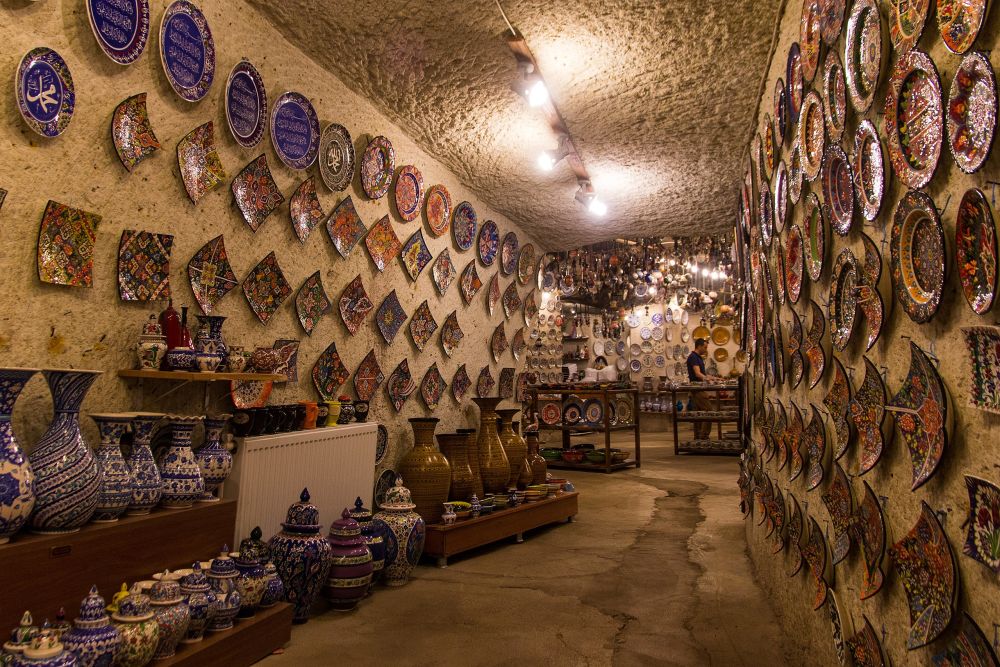

The small town of Avanos, located in the historical region of Cappadocia in central Turkey, has a rich tradition of pottery making that dates back to the Hittite period, around 2000 BC. This ancient craft has been handed down through generations, and the town’s proximity to the Kızılırmak River, or "Red River," has provided the red clay essential for its pottery production. The river not only shaped the landscape of the region but also provided the material that shaped its cultural identity.
Tourism in Avanos began to flourish with the wider recognition of Cappadocia’s unique lunar landscape, fairy chimneys, rock-hewn churches, and underground cities. The distinctive pottery of Avanos became a significant tourist attraction alongside these natural and historical wonders. By the 1960s, with the advent of national and international tourism, pottery workshops began to gain popularity among visitors seeking authentic experiences and souvenirs.
The increase in tourist interest has led many local potters to open their doors to the public, allowing visitors to observe the creation process and even try their hands at the potter’s wheel. With the rise of cultural tourism, the focus expanded from merely selling pottery to providing interactive workshops where visitors can immerthemselves in the craftsmanship and history of Avanos pottery.
In recent years, experiential travel has become a dominant trend in the tourism industry, and the pottery workshops of Avanos fit perfectly into this movement. Tourists are not only looking to see the sights but also to engage in local culture and traditions. The workshops offer personalized and small-group experiences, where visitors can create their own pottery under the guidance of master craftsmen.
Sustainable and eco-friendly tourism practices are also shaping the way tourists experience Avanos. There is an increasing demand for authenticity and sustainable souvenirs, which the pottery of Avanos provides. The workshops often highlight the sustainable nature of their craft, emphasizing the use of natural materials and traditional techniques that have minimal environmental impact.
The influence of digital technology on tourism has been significant, with many travelers now discovering Avanos through social media and travel blogs. Pottery workshops have adapted to this change by maintaining a robust online presence and offering online booking options for their experiences, making it easier for visitors to plan their participation in a pottery workshop as part of their Cappadocia itinerary.
For those planning to visit, it is recommended to allocate at least half a day to fully engage in a workshop experience, which typically includes a pottery demonstration, hands-on experience, and the opportunity to purchase unique, handmade souvenirs. Many workshops also feature galleries showcasing exquisite ceramic art, often blending traditional Turkish motifs with contemporary designs.
The legacy and future of Avanos pottery remain strong as both local and international tourists continue to take an active interest in this age-old craft. Through their interactions with local artisans, visitors contribute to preserving the cultural heritage of Avanos while fostering a global appreciation for traditional Turkish pottery.